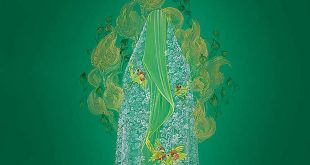The Al-Mahdi Institute (AMI) welcomes applications for the AMI Doctoral Scholarship to support talented students working on the study of Imāmī (Twelver) Shīʿism.
Despite being one of the largest minority denominations, Imāmī Shīʿism is still a relatively small area of focus within Islamic studies. It is the aim of the AMI Doctoral Scholarship to promote and encourage the study of Imāmī Shīʿism in academia.
The Scholarship is open to students of all nationalities successfully admitted to a doctoral programme at universities based primarily – but not exclusively – in the United Kingdom and North America and who are writing their thesis in the English language. For students on doctoral programmes in the United Kingdom, the Scholarship is available at any point from the first year of the programme. For students based at universities in North America, the Scholarship is available at any point after qualifying exams have been successfully completed.
The value of the scholarship is £3,000 per year with scope for this to be renewed for a further two years.
We welcome applications from students working on the following fields of research:
- Imāmī Shīʿī law and legal theory
- Imāmī Shīʿī engagements with ethics
- Imāmī Shīʿī theology and philosophy
- Imāmī Shīʿī engagements with Qurʾanic studies
- Works of Imāmī Shīʿī exegeses of the Qurʾan
- Studies concerning the life and thought of the Prophet, the twelve Imāms, and other members of the ahl al-bayt; particularly that of women such as Khadīja, Fāṭima, and Zaynab, amongst others.
- Studies related to the life and thought of the Companions of the Prophet and Imāms who advocated the centrality of the ahl al-bayt in their political and theological positions such as Salmān, Abū Dharr al-Ghifārī, Hishām b. al-Ḥakam, Zurāra b. Aʿyan et al.
- Intellectual history of Imāmī Shīʿī thought
- Imāmī Shīʿī thought across different time-periods and regions (Baghdad, Ḥilla, Qum, Jabal ʿĀmil, Iṣfahan, Najaf, Karbala, Lucknow etc.
- Imāmī Shīʿī liturgical sources and thought
- Diversity in Imāmī Shīʿī thought (Akhbārism, Shaykhism, ghuluww etc.)
- Contribution of Imāmī Shīʿī thought to Islamic civilization
However, topics which fall outside the scope of these specified topics may still be considered at the discretion of the committee, providing they are still related to the study of Imāmī Shīʿism.
To apply for the Scholarship, you must submit:
- A tailored CV detailing your qualifications and work experience;
- A research proposal detailing the project you intend to work on;
- A personal statement of up to 500 words explaining how you would like your career to develop over the next ten years and how studying for a doctorate will support you in this;
- A letter of acceptance from the university. As you may not receive this by the deadline of the Scholarship, it can be sent after the deadline. Sending this document after the deadline will not prevent your application from being considered. For students currently enrolled on doctoral programmes, you must submit a proof of enrolment letter from your university.
Timeline of the application process:
- Applications open on the 1st February, 2023 and close on the 1st of April 2023.
- Applications shall be assessed by the committee throughout April 2023. During this process, the committee may request interviews with applicants.
- Acceptance and rejection letters shall be sent out in the first week of May 2023.
- Applicants must confirm their acceptance onto a doctoral programme by August 2023.
- The Scholarship shall be paid directly to the student in the first week after the commencement of their programme.
 Ijtihad Network Being Wise and Faithful Muslim in the Contemporary World
Ijtihad Network Being Wise and Faithful Muslim in the Contemporary World
